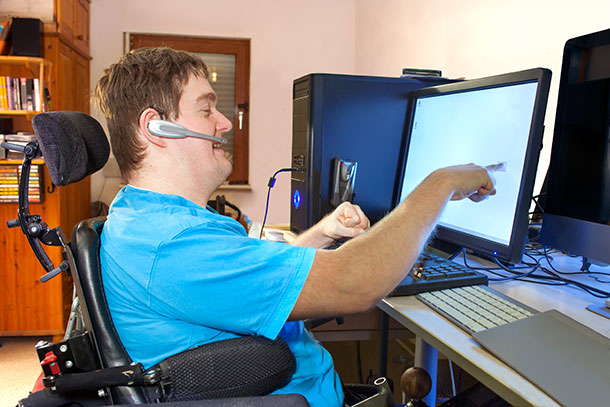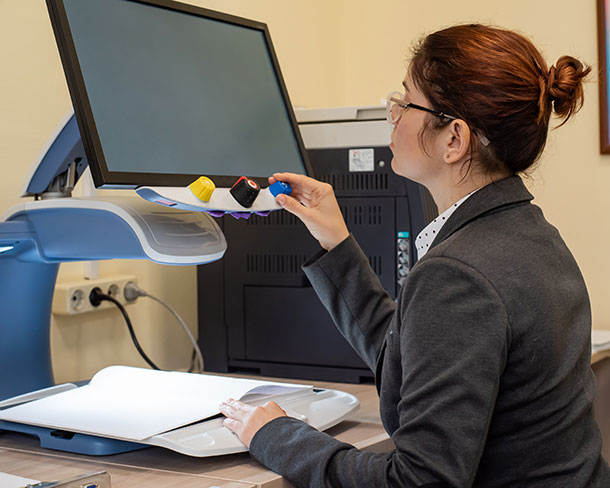If you’re looking to improve your recruitment practices, one area to focus on is inclusive hiring. But if you have little or no experience with it, you may not know how to ensure the interview process is accessible for people with disability.
Luckily, with some knowledge and preparation, you can conduct an inclusive and respectful interview that allows everyone to showcase their skills and abilities.
What does inclusive recruitment look like?
Inclusive hiring is embracing diversity when recruiting, selecting, and onboarding applicants. This practice means creating a welcoming and accessible environment for candidates, as well as considering their skills and qualifications without any biases or prejudices based on their disability.
Here are some examples of how to create an inclusive interview process:
Describe the role accurately and clearly
This step includes providing a detailed job description—outlining the duties and responsibilities of the role, and the necessary skills and qualifications. By doing so, you can ensure that all candidates clearly understand what you expect of them and make an informed decision about whether or not to apply.
Use a blind application process
This process removes identifying information from resumes and applications, such as names, addresses, and education. It helps you reduce unconscious biases and ensures that you consider all candidates based on their skills and qualifications alone.
Actively seek out individuals from diverse backgrounds
This may involve posting job ads in locations where diverse candidates are likely to see them, as well as reaching out to organisations that represent people with disability or other underrepresented groups.

How do you interview people with disability?
Do your research
When hiring people with disability, it is essential to do your research and consider the specific needs and requirements of the candidate. Here are some things to consider:
Are there any particular accommodations the interviewee requires?
Some candidates with disabilities may require specific accommodations to participate in the interview process. These could include providing a sign language interpreter, large print materials or assistive technology.
Ask the candidate about their needs and make any necessary arrangements in advance to ensure a smooth and successful interview process.
Do you have biases you may not know about?
Awareness of your biases and assumptions is necessary, as they can impact your perceptions and evaluations of candidates with disabilities. Consider seeking out training or resources on disability awareness and sensitivity to help you better understand and appreciate the unique skills and perspectives of people with disability.
Are you expecting too much or too little?
Focus on the candidate’s skills, experience, and qualifications rather than their disability. Avoid making assumptions about what someone with a disability can or cannot do, and instead, consider their potential to contribute to your organisation.

Be observant
Not all disabilities are visible, and not all people with disability identify in the same way, so make it a habit to be observant and listen carefully when interviewing people with disability.
Consider these actions:
Take a cue from how the interviewee refers to their disability
Some candidates may prefer to use specific terminology when discussing their disability. For example, some may refer to themselves as “disabled,” while others may like to say, “I have a disability.” Respect the language and terminology that the candidate uses and follow their lead when discussing their disability.
Pay attention to nonverbal cues
Pay attention to the candidate’s body language and facial expressions during the interview. This can help you get a sense of how comfortable and confident they are and whether they may need any additional support or accommodations.

Be understanding but not patronising
Here are some tips on how to approach the interview respectfully and sensitively:
Be polite and respectful. Use appropriate language and tone of voice, and treat the candidate with the same professionalism and respect as any other candidate.
Show interest in the candidate. Engage with the candidate and ask questions about their skills, experience, and qualifications.
Avoid slipping into childlike language. Instead, treat the candidate with the same level of respect and professionalism you would use with any other adult. Use clear plain English, rather than technical jargon, to avoid misunderstanding.
Avoid compliments relating to their disability. Comments or compliments in relation to what the candidate has achieved or is able to do ”despite” their disability can come across as patronising or inappropriate.
Rephrase questions if necessary. If you are unsure about how to ask a question or are worried about offending the candidate, rephrase the question. This will help you get the information you need while also being respectful and sensitive to the candidate’s needs and preferences. For example, instead of asking if their disability could be a problem, ask how they plan to accomplish the job.
Ask questions if unsure. If you are uncertain about anything, ask for clarification. Frame your questions in a respectful and sensitive manner, and avoid asking personal or inappropriate questions. If the candidate is fidgeting or appears uncomfortable, ask how you can support them to feel more comfortable.

Ask inclusive interview questions
Asking appropriate interview questions is an integral part of inclusive hiring. Here are some tips:
- Focus on the candidate’s skills, experience, and qualifications.
- Avoid asking about the cause of the candidate’s disability.
- Consider asking about accommodations.
Job Access has a list of appropriate questions that employers can ask when interviewing candidates with disabilities.
Don’t talk over people
When interviewing some people with disability, you may notice that it takes time for them to respond. Do not interrupt them. Some candidates with disabilities may require extra time to process information or formulate a response—whether they are using assistive technology or not.
If the candidate has a speech impairment, it’s harder for them to communicate quickly and clearly. So listen carefully and be patient while they speak, rather than interrupting or talking over them.
Provide alternative ways of interviewing if needed
Being flexible is another excellent practice in inclusive hiring. Some ways you can do this are:
- Providing questions in advance. Some candidates may feel more comfortable and confident if they can review the interview questions in advance. This can help them prepare and practice their responses and may make the interview process less intimidating.
- Allowing the candidate to write their answers. Those with mobility or speech impairments may feel more comfortable communicating through writing. Allowing the candidate to write their responses to the interview questions can help ensure they can fully participate in the interview process.
- Interviewing via video conferencing. This alternative is helpful if the candidates cannot travel to the interview location. This allows them to participate from a more convenient location and may also provide the opportunity for them to use assistive technology or other accommodations.

Build an inclusive workplace with Mambourin
There are many benefits to hiring people with disability. Mambourin can recommend people graduating from our traineeships programs or support businesses looking to outsource through Mambourin Business solutions. In addition, we have work readiness programs that equip people with disability with the training they need for real-world applications.
Get in touch

